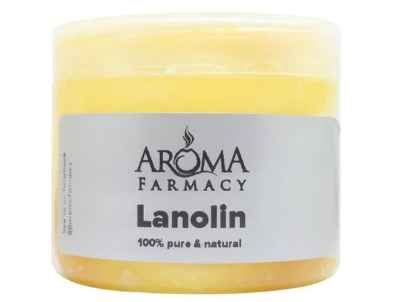Lanolin is a natural substance derived from sheep’s wool. It is commonly used in many personal care products such as moisturizers, lip balms, and hair care products due to its moisturizing properties. However, the use of lanolin in personal care products has raised questions about its vegan status. In this article, we will explore whether lanolin is vegan or not.
What is Lanolin?
Lanolin is a natural wax produced by the sebaceous glands of sheep. It is extracted from sheep’s wool and is commonly used in various cosmetic and personal care products due to its emollient and moisturizing properties. Lanolin has been used for centuries for its medicinal properties and is still used today in many medicinal creams and ointments.
How is Lanolin Extracted?
The process of extracting lanolin from sheep’s wool is relatively simple. The wool is first washed to remove any impurities and dirt. After washing, the wool is placed in a centrifuge and spun to separate the lanolin from the wool. The lanolin is then further refined to remove any remaining impurities.
Is Lanolin Vegan?
The question of whether lanolin is vegan or not is a controversial one. On the one hand, lanolin is a natural substance that is derived from sheep’s wool. It is not a synthetic ingredient, and it is not produced by harming or killing animals. However, on the other hand, some vegans argue that the use of any animal-derived substance, including lanolin, is not vegan.
The Vegan Society defines veganism as “a way of living that seeks to exclude, as far as possible and practicable, all forms of exploitation of, and cruelty to, animals for food, clothing, or any other purpose.” Based on this definition, the use of lanolin may be considered non-vegan as it is derived from sheep, and its production may involve the exploitation of animals.
It is also worth noting that the use of lanolin in personal care products may not align with some vegans’ ethical values, as the production of wool is often associated with animal cruelty. The commercial wool industry is known to use practices such as mulesing, which involves the removal of skin from a sheep’s rear end to prevent flystrike. This practice is considered cruel by many animal rights activists.
Alternatives to Lanolin
For those who choose to avoid lanolin in their personal care products, there are many vegan alternatives available. Many plant-based oils, such as coconut oil, jojoba oil, and shea butter, offer similar moisturizing benefits to lanolin. These plant-based ingredients are often more sustainable and ethically sourced than lanolin, making them a popular choice among vegans.
Additionally, it is worth noting that some companies have started producing lanolin ethically. These companies use sustainable and cruelty-free methods of extracting lanolin from sheep’s wool, which means that the animals are not harmed in the process. These companies may also use wool from sheep that have not undergone practices such as mulesing.
If you are someone who chooses to use lanolin in your personal care products, it may be worth doing some research to find companies that produce lanolin ethically. By doing so, you can ensure that you are using a product that aligns with your ethical values and does not contribute to animal exploitation.
It is also essential to note that not all vegans will have the same stance on the use of lanolin. Some vegans may choose to use lanolin if they feel that its benefits outweigh the ethical concerns. Ultimately, the choice of whether to use lanolin or not is a personal one and depends on one’s individual values and beliefs.
Conclusion
In conclusion, the question of whether lanolin is vegan or not is a complex one that does not have a clear-cut answer. While lanolin is a natural substance derived from sheep’s wool and is not produced by harming or killing animals, its production may involve the exploitation of animals. For those who choose to avoid the use of lanolin in their personal care products, there are many vegan alternatives available.
The question of whether lanolin is vegan or not is a controversial one. While lanolin is a natural substance derived from sheep’s wool and is not produced by harming or killing animals, its production may involve the exploitation of animals. As such, some vegans may choose to avoid the use of lanolin in their personal care products.
For those who choose to avoid lanolin, there are many vegan alternatives available that offer similar benefits. Plant-based oils such as coconut oil, jojoba oil, and shea butter are just a few of the many vegan ingredients available in personal care products today. Ultimately, the choice of whether to use lanolin or not is a personal one and depends on one’s ethical beliefs and values.
Ultimately, the choice of whether to use lanolin or not is a personal one and depends on one’s individual values and beliefs. As a consumer, it is essential to do your research and make informed choices when it comes to the products you use. By doing so, you can ensure that the products you use align with your ethical values and do not contribute to animal exploitation.

